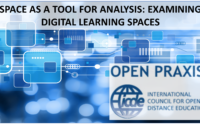
Evolving Learning Paradigms: Re-Setting Baselines and Collection Methods of Information and Communication Technology in Education Statistics
The UNESCO Institute for Statistics (UIS) has been measuring ICT in education since 2009, but with such rapid change in technology and its use in education, it is important now to revise the collection mechanisms to focus on how technology is being used to enhance learning and teaching. Sustainable development goal (SDG) 4, for example, […]













